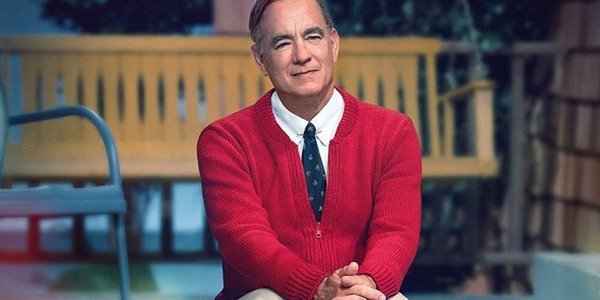There are two types of narratives that always hit me like a thunderbolt. They don’t even need to reinvent the wheel; they can just revel in all the clichés and I am a goner. The first is an underdog-sports genre film and the sport doesn’t matter – a ragtag team that can’t work together have failed so many times they don’t know which way is up. In comes a coach, with his personal demons, who will transform the team and himself in the process. The last act is practically carved in stone – it’s the final game, but they have lost the first half miserably. The coach delivers a half-time pep talk that gives everyone a helluva adrenaline shot, and with a great swell of music the team wins the game by a hair’s breadth. The second movie genre that I have a soft spot for is a father-son story. Give me Like Father, Like Son (2013). Give me Field of Dreams (1989). Give me Big Fish (2003). And I show you a grown man who totally loses it. These are stories that feel like they were written for me. I know that because my breath is caught in a hitch, my heart is soaring and my tears are welling up by the last act.
I say all of that as a preface because I have a feeling I may be biased in how this review will turn out. I will attempt to be strict but as I am pondering over A Beautiful Day in the Neighbourhood my eyes are already glistening, just so you know.
Tom Hanks portrays Mister Rogers in A Beautiful Day in the Neighborhood, a timely story of kindness triumphing over cynicism, based on the true story of a real-life friendship between Fred Rogers and journalist Tom Junod (Mathew Rhys). After the jaded magazine writer (renamed as Lloyd Vogel for the movie) is assigned to write a 100-word profile of Fred Rogers, he overcomes his skepticism, learning about empathy, kindness, and decency from America’s most beloved neighbour.
I grew up with the likes of Sesame Street and Electric Company, and had no idea there was another American venerable mainstay in children’s television in the form of Mr Rogers’ Neighbourhood. Hence, watching the opening scene of a sugary mild-mannered man in a red cardigan donning his sneakers and offering homilies was curiously fascinating.
Director Marielle Heller didn’t do a straight-up biopic of a celebrated personality. As soon as Tom Hanks’ Fred Rogers is done with singing the theme song of a typical episode of the television programme, he introduces us to Lloyd Vogel. An unfaltering photograph of Vogel is presented and the story shifts its perspective to Vogel’s. Before long, you will realise that Rogers is not the main character. We see Rogers through Vogel’s cynical eyes which is the surrogate of people like me on this side of the screen. How can there ever be a person with not a single bad thought, bad bone and bad deed in his being? Apparently, there is and his name is Mr Rogers.
A Beautiful Day in the Neighbourhood is not much of a biopic. It uses a narrative framework to tell a story of how Mr Rogers affected generations of people, young and old. Tom Hanks does a splendid job as Mr Rogers, capturing not just his simple mannerisms, measured speech and patient eyes, but the essence of the man. This is a man with such simple gestures, possessing a Zen-like vibe, who offers us a blueprint of how a world can be like if we all do the simple things, like loving everyone in your neighbourhood, well. His innate ability to relate to children and his uncomplicated view of the world, remarkable to the point my heart threatens to explode in a flurry of rose petals. Some of the scenes feel fabricated for pseudo-nostalgia, especially the one where random people on a subway train see Rogers and start to sing the theme song (it’s in the trailer). Later, I would read Tom Junod’s article and found out it did happen.
Vogel’s story arc is the ubiquitous storied history of a man wounded by his father who abandoned him and his dying mother. Stop me if you have heard this one before – his father Jerry (Chris Cooper) comes back wanting to reunite with the son. The father is sick and doesn’t have long, but the son finds it impossible to forgive him, but eventually with some help finds closure with his father. We have seen this story template numerous times, but Vogel’s emotional arc is empathetically satisfying. Through interviewing Rogers, Vogel got “interviewed” instead by Rogers with his never ending questions in his soothing cadence of a voice. When Vogel’s arc is complete, I never felt cheated with an act of convenience, but felt moved that with the help of good old Mister Rogers he could face his demons with a big heart of love. This is a wonderful storytelling device – we may not have gotten a full tour of a delightful man and his ideas, but we get to experience his kindness, honesty and philosophy. I don’t know about you but with the state of the world as it is now, we could all use a bit of Mister Rogers.
It leaves me to enclose Tom Junod’s article Can You Say… Hero? A 100-word puff piece that became a thesis on a kind soul and how Rogers’ simple philosophy of life changed him. It’s long, but it is a rewarding read. My advice is to read it after you have watched the movie. Your skepticism of the man will melt away as the words cascade into your consciousness and hopefully into your heart.
Written by Daniel Chiam

Leave a comment